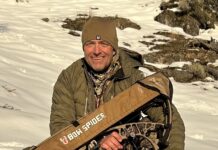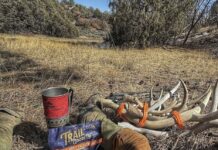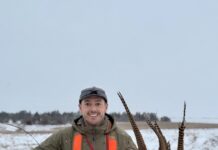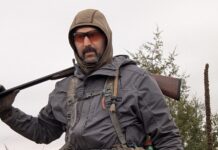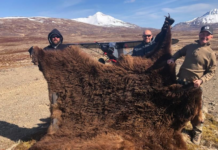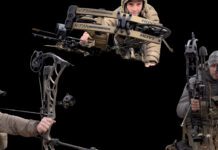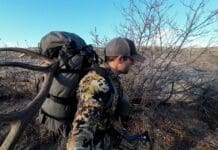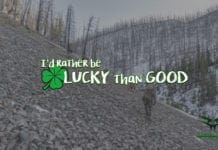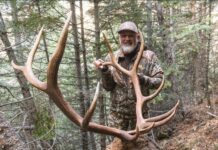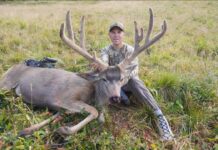Two things account for more horror stories and ruined trips than anything else: bad equipment and bad hunting partners. Rokslide has the best equipment reviews and depth of information on equipment than any other source I have found. Equipment is put to the test by people using the gear in the real world and it becomes quickly apparent who is the real deal and who are posers. There is no excuse for not having the right equipment going into the field–you may not be able to purchase the premium equipment you want and others are championing–but information on options available to fit any budget and hunting situation is readily available in almost every thread.
The Right Hunting Partner
Choosing the right hunting partner, on the other hand, is an overlooked portion of the hunting trip that can sneak up on a person and sabotage the best-laid plans. Some of my favorite hunting trips have been in poor areas with equipment failures–but it was the hunting partners I had with me that made the trip memorable and a success, even if the game bags remained unused. Likewise, I’ve returned from a successful harvest angry and disappointed because of the hunting partner I chose that trip. We need to put at least the same amount of effort in selecting our hunting partner as we do selecting a pack or what sleeping system we are using. All names in this article have been changed to protect the guilty.
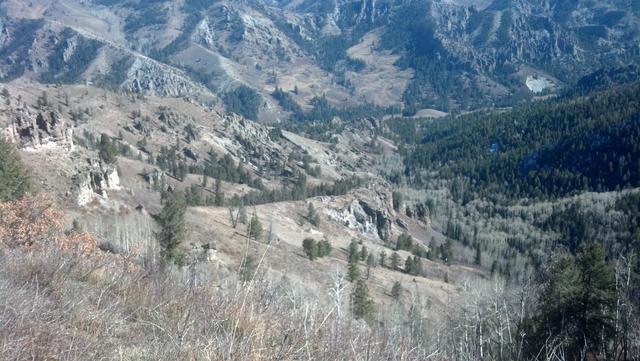
Mom’s Wisdom
My first hunting partners were my parents. My parents were primarily mule deer rifle hunters – elk were rare targets of opportunity. Over the years I believe mom actually killed more deer than my dad, and certainly the largest. She was the master of sitting a stand, glassing, and patience. She’s the one who taught me to observe what everyone else is doing and adapt my stand choice accordingly. She often let others push animals onto the hillside she was patiently watching, all while snacking on little boxes of raisins and a few apples during the day. Two moonlight walks and a picnic lunch was her standard.
Dad’s Lessons
Dad still-hunted the PJ woodlands always reading what the sign was telling him–much more more the speed of an excited kid toting a Benjamin .22 for rabbits. Reaching over five decades now, I find myself stand hunting more often but always relying on the lessons my dad taught me about basic bushcraft.
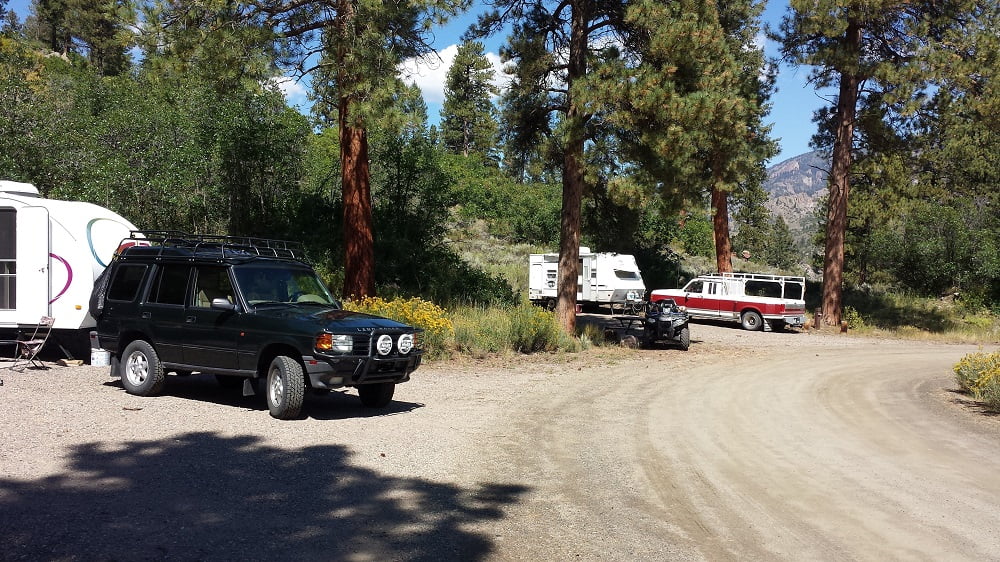
A Hunting Partner You Can Count On
When I moved to Utah after college, I found a new hunting partner in Billy. We worked together during the week and hunted together every chance possible from grouse to archery elk. The best part about Billy was his competence in the woods. We could stand at the bottom of a valley at dawn, point to a rock outcropping three miles away, and agree to meet there for lunch. Heading out on our own sides of the valley to hunt, we would always meet where we pointed to in the weak morning light. That reliability took away any hesitation in hunting an area; you knew you had a partner and where hed would be at a given time.
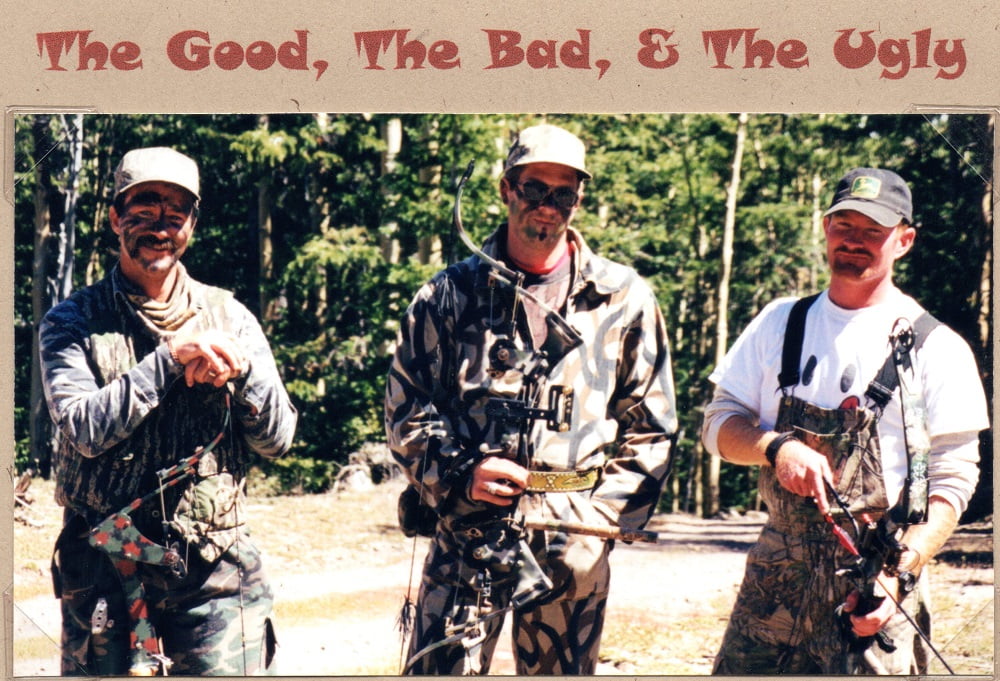
The Downside
When we hunted together as a team, we knew each other well enough that we didn’t need to talk much when hunting as we instinctively knew what each other was doing and thinking. The one drawback of hunting with Billy, looking back, was although we hunted very hard during the day, nights in the wall tent focused on a few too many adult beverages. We killed a lot of game together over the years but that heavy drinking eventually became the reason we no longer hunted together. I grew out of that phase but Billy did not.
Billy gave me the passion for archery hunting, especially for elk. The first trip out archery elk hunting (1993), spike/cow unit in central Utah, a 6×7 300+ bull came within 10 yards of us screaming and began molesting a 4” quakie. I was hooked on archery elk from that moment on. This was also when I realized why Billy tied the “cow-in-estrus” scent rag onto my backpack and not his…
Reliably Late
Billy was always 30 minutes late. Annoying to be sure, but he never bailed out on a trip or came home early. You just had to expect to be late that first morning of any trip headed up the mountain. We were blue-collar/cotton-clad hunters with big dreams and average equipment, but we had a passion for hunting and put the time in out in the woods to ensure success. He was the guy I could call any time of day or night and ask for help getting an animal out, even if it required several hours to drive to the mountain.
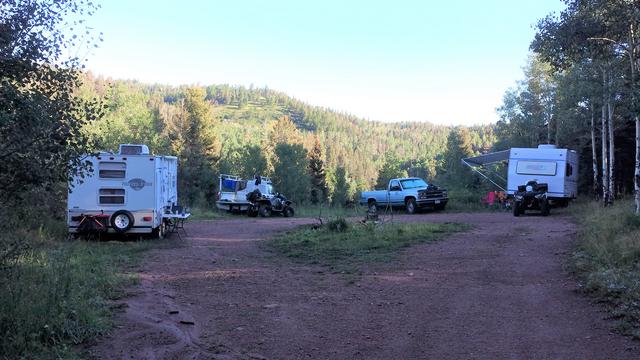
A Not So Good Partner
Mason worked with Billy and me several months a year at our day jobs. Mason brought new challenges to any hunting trip he accompanied us on. He had a tendency to flake out–something always came up. With Mason, you planned the hunt as if he was not going to make it and it was a bonus if he did. When Mason did show up, he usually forgot half of his gear at home and had to be outfitted out of whatever extras anybody else had. He’s the partner who shows up opening morning and casually mentions he still needs to sight in his gun. The deal-breaker with Mason was his propensity to bring others into the honey holes Billy and I showed him over the years. It’s public land and he has that right, but Billy and I also had the choice to not invite him back.
Don’t Burden Your Buddy
I hunted solo for several years when I moved back to Colorado. Adam was my next partner. Adam hates to read the regulations and become knowledgeable about the application process. On more than one occasion he has failed to put in for the correct license, missed a deadline, or had not checked the current year’s dates to see if there is a conflict with another standing commitment. Coaching him annually on what we need to do to hunt a specific area is tiresome. Some years I’ve just let him flounder. If it is valuable you will figure it out yourself.
Be Willing To Listen
Adam’s personality often complicates things. Since he “knows everything”, he never wanted to compare and check gear with me. His ever-present frugalness prevented him from purchasing gear better suited for his first backpack hunt and the 75# pack he was humping up the steep trail punished him severely. Because he didn’t know how to use his GPS or plot UTM coordinates (which he assured me he did know), he didn’t fully understand where we agreed to meet on the map and photo I gave him and couldn’t check where he was. I had to hike back down a mile, brought him water, and then split his gear between us, helping him get to camp.
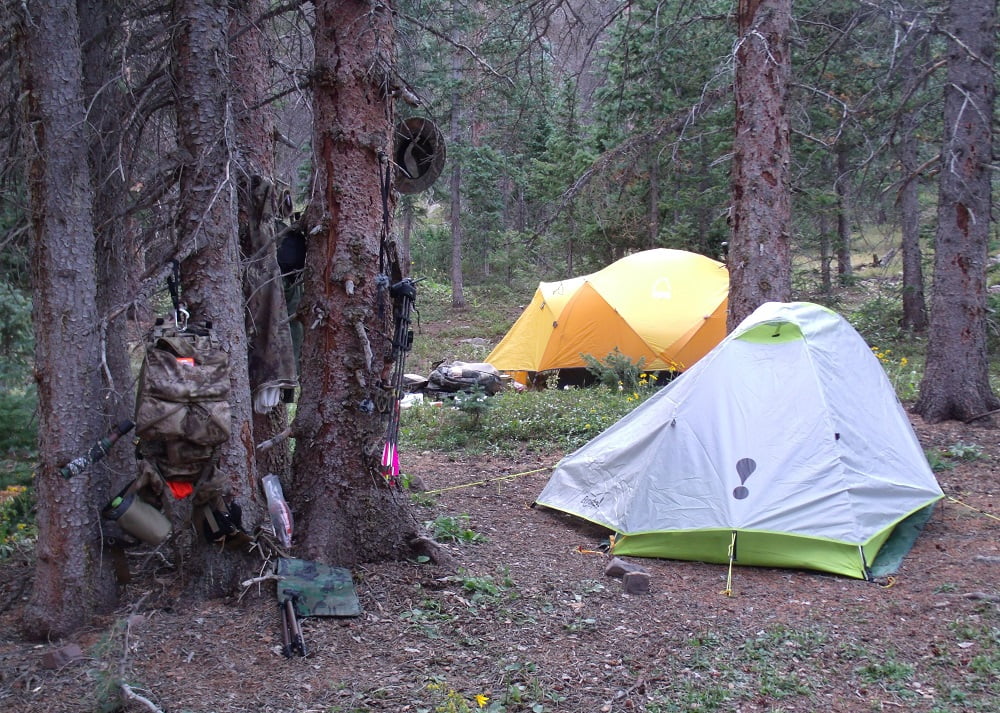
You Must Be On The Same Page
Adam is always looking for greener pastures. He’s more of a “run and gun”. I’m more of a guy who stays in a known area finding that one animal making the tracks or rub I found. Because he is in great condition, he sometimes prefers to hike the death march into an area several times over a week rather than camp. I pack into camp one time and roam out from there daily. Being away from home for over three days becomes an issue with Adam and he gets further agitated if he cannot talk with his family nightly. I’m good for up to seven days at a time and would love to stay longer if I had the vacation time to do it
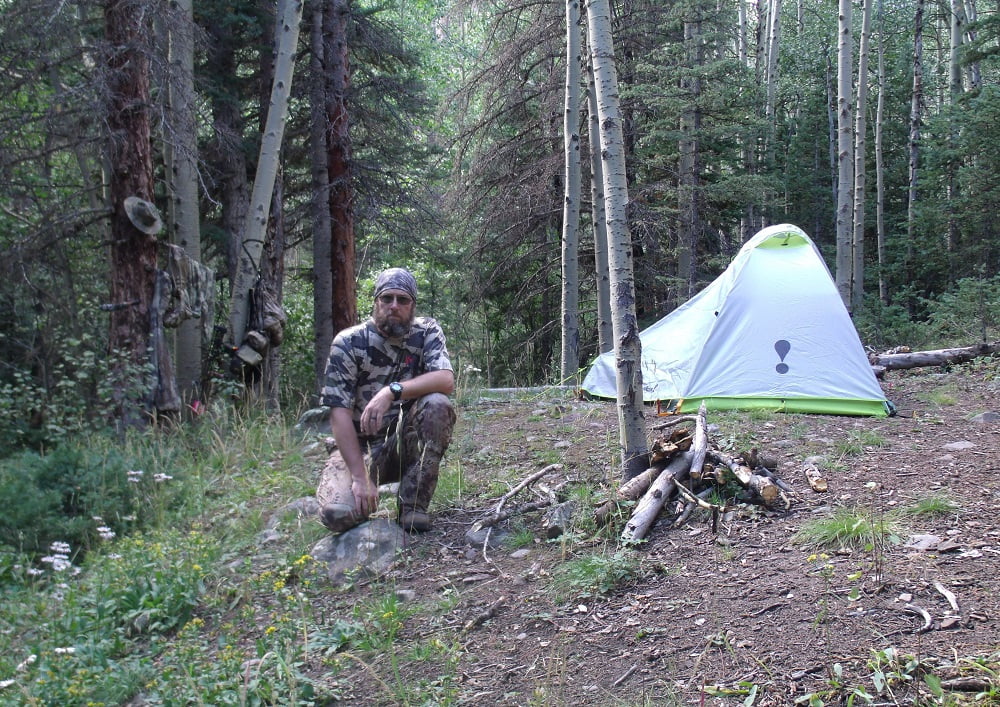
Train Your Own
My 13-year-old daughter, Emma, is my newest hunting partner. As her dad (a.k.a. benevolent dictator) I guide much of her hunting style and application process. She’s all girl and tougher than most adult men in the mountains. She knows how to ride the ATV, operate the radios, read a map, use a GPS, walk quietly. And when to contribute sarcasm as well as silence. Taking my daughter on as my hunting partner has been a learning experience.
When I was a kid you took the hand-me-down hunting gear you slept in the night before, a pocketknife, jumped in the truck, kept your mouth shut, and were glad just to be there. When taking your daughter, I’ve found one must make sure we have the chargers for her tablet and music, favorite blanket for the nap down and back, travel shoes, stuffed unicorn (well, she did give that up last year finally), every hoodie in her arsenal, a plethora of snacks, drinks, coloring books, and colored pencils. She’s growing up to be the best partner I’ve ever had.
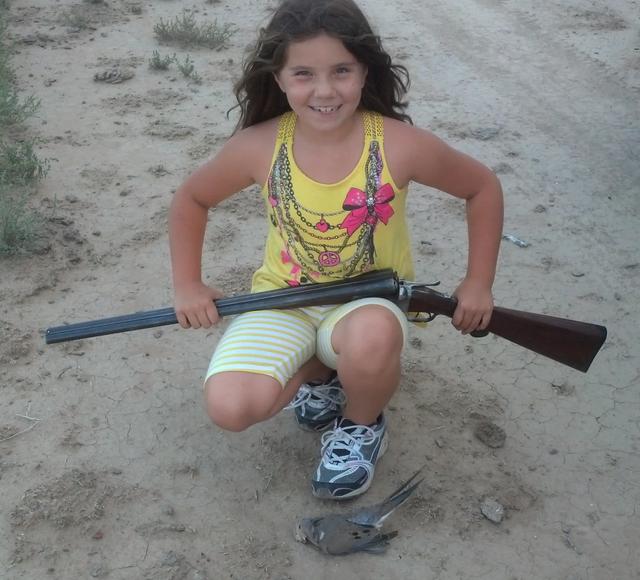
How To Pick A Good Partner
There have been a few other partners spread into the mix over the years. Some good, some not so good. Each one had a lesson to teach me about picking a partner. Here’s a list of questions to carefully consider when picking a partner for your next hunting trip. The same questions should be applied to ourselves as well. “John” will be the partner we are considering for an upcoming hunt. Here’s my “Top Ten”.
- Is John reliable and will he remain committed to going on the hunt? Application periods and planning occurs months before the actual hunt. Time and money will surely be wasted if he won’t remain committed. Does John have the ability to commit and lock in time off of work AND time away from family for the hunt? Are you and John perfectly (even painfully) clear on what the hunt, dates, travel, and expectations are for the hunt?
- Is John physically able to hunt the terrain you are going into? Banking on John “getting in shape” before the hunt is a disaster you will witness unfolding in the months prior to the hunt. Are there any medical issues I need to know about beforehand? Have I been trained on how to handle those issues (hypoglycemia, diabetes, anaphylaxis, cardiac issues, etc.)? Have I disclosed the same?
- Does John have the necessary resources for financing his portion of the hunt in terms of tags, travel, and any needed equipment? I know hunters who paid for tags months prior and a week before we are to leave back out stating they can’t take time off or cannot afford the travel costs.
- Will John stay for the duration of the hunt? At the first signs of discomfort and stress will he go home (a real problem if sharing transportation and gear…)?
- How will the meat be split if only person is successful? This must be asked PRIOR to leaving the truck! Will John commit to helping drag or haul meat out?
- Can I tolerate John’s personality quirks for the duration of the hunt? (Alcohol consumption, sense of humor, general conversation, hygiene, snoring, communication needs, food preferences, etc.) Are you and John putting in equal sweat equity into planning and scouting?
- Am I confident John has the basic bushcraft skills to read a map and not get lost/injured in the area? If he became disoriented does he know how to survive the night? Will he be in the basin he said he was going into? What is the emergency plan in case of injury or becoming lost?
- Is John self-contained in his hunting gear? What items will we split up between us? Will we share a camp or sleep in separate tents/trailers?
- Are John’s hunting morals compatible with mine? Is he trustworthy?
- Have we agreed to hunt as partners or are we hunting independently from the same camp? Are our hunting methods compatible (spot-stalk, still hunt, etc.)? And, do we agree on plan B-C-D strategies in case A is a bust?
Choose Carefully
Finding the right partner for marriage just might be easier than the right hunting partner. I’ve seen newlyweds almost divorce over the trivial task of putting up a tent. I’ve seen hunting partners never speak again over sharing meat from a harvest or snoring in a tent. Having even minor issues permeate something as important as your hunting trip can end up being catastrophic. Choose wisely and enjoy your hunt with a partner that has been well vetted and thoughtfully chosen!
You can comment or ask Chas questions here.
Here are some other great Rokslide hunting articles.

